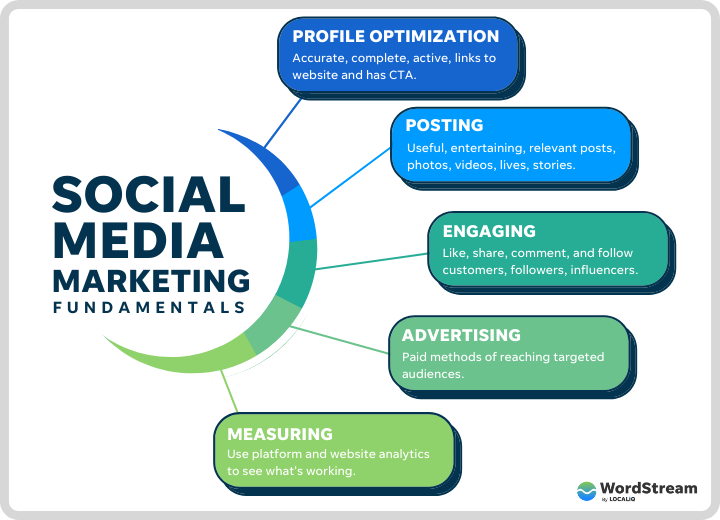Recognizing the Impact of Influencer Advertising And Marketing on Customer Habits
In today's digital landscape, influencer marketing has actually arised as a powerful force in forming consumer behavior, yet its complex effects on buying decisions continue to be a topic of keen interest. By leveraging credibility and relatability, influencers frequently are successful where traditional advertising falls short, cultivating count on and driving engagement.
The Increase of Influencer Marketing
Influencer marketing has swiftly come to be a pivotal strategy in the digital advertising and marketing landscape, basically modifying just how brand names engage with their audiences. Brands are increasingly leveraging these influencers to amplify their reach and foster authentic links with possible clients.
The ascent of influencer advertising can be associated to the cooperative partnership in between influencers and their followers. In addition, the comprehensive reach and engagement prices that influencers command supply brands with an opportunity to access varied demographics efficiently.
In addition, technical developments have actually strengthened this pattern, allowing more specific targeting and analytics. Brand names can now work together and identify with influencers whose target markets straighten with their target audience, optimizing their marketing strategies. Therefore, influencer marketing proceeds to develop, improving the consumer-brand dynamic in a digital age.
Psychological Vehicle Drivers of Influence
At the core of influencer advertising's performance lie a number of mental vehicle drivers that profoundly effect customer actions. One primary chauffeur is social evidence, where people aim to others' behaviors to direct their very own activities. Influencers, with their sizeable followings, create an understanding of popularity and approval, encouraging customers to align with the promoted selections. This is specifically powerful in electronic spaces, where social validation occurs with likes, shares, and remarks.
Another critical psychological driver is the concept of relatability. Influencers usually share individual tales and experiences, promoting an emotional connection with their audience. By showing up relatable, they lower the viewed distance between themselves and customers, developing a sense of camaraderie and influencing choices with shared values and experiences.
Deficiency additionally plays a critical duty, as influencers often highlight unique items or limited-time offers, using customers' concern of missing out (FOMO) This urgency encourages quicker getting decisions, harnessing the human tendency to worth rare opportunities more very.
Furthermore, influencers leverage the authority concept. Their knowledge or status in a certain field confers credibility, motivating customers to trust their recommendations and follow their lead. With each other, these mental drivers underpin the influential power of influencer advertising.
Count On and Credibility in Branding
When it comes to developing a successful brand, depend on and credibility stand as crucial elements that significantly influence consumer behavior. Count on is foundational, as it establishes a trustworthy link in between the brand name and the consumer, promoting loyalty and repeat interactions.
Credibility, on the other hand, includes the authentic representation of this page a brand's values and mission. Customers are significantly attracted to brand names that straighten with their individual beliefs and values. This alignment is commonly accomplished when brands interact their story and purpose honestly, without resorting to contrived marketing strategies. In the realm of influencer marketing, credibility is specifically critical, as customers are skilled at discerning genuine recommendations from paid promos. Influencers that authentically personify the brand name's values can efficiently convey this authenticity, thereby boosting customer depend on.
With each other, count on and credibility in branding not just influence buying decisions however also boost brand equity, cultivating a enduring and favorable connection with customers.
The Function of Social Evidence

Social proof materializes in various kinds, such as user evaluations, endorsements, and the visible appeal of an influencer (Marketing). When an influencer endorses an item or service, their followers usually translate this recommendation as a validation of high quality and dependability. This impact is intensified when numerous influencers convey similar messages, creating a bandwagon effect that better encourages consumers to align their purchasing choices with those of their social circle

Approaches for Reliable Involvement
Making the most of the impact of influencer marketing requires carefully crafted strategies for effective involvement. An essential strategy is picking influencers whose target market lines up carefully with the brand name's target market. This positioning makes sure that marketing content resonates with possible customers, improving credibility and count on. Additionally, crafting personalized content that mirrors both the influencer's voice and the brand name's message is important. Such material fosters real links with audiences and improves the perceived trustworthiness of endorsements.
An additional crucial strategy is developing long-term collaborations rather than one-off cooperations. Sustained communications between influencers and brand names can grow deeper partnerships with audiences, causing higher interaction and loyalty. Brand names should likewise leverage diverse web content styles-- such as tales, reels, and live sessions-- to optimize reach across different systems and audience choices.
Moreover, engaging influencers in the imaginative process can cause innovative campaign concepts that astound audiences. Urging influencers to share their authentic experiences with products can better deepen interaction, as target markets value transparency and relatability. Assessing and monitoring interaction metrics permits brand websites names to improve their strategies continually, guaranteeing that influencer partnerships produce ideal outcomes. By carrying out these methods, brand names can properly harness influencer advertising and marketing to affect customer habits.
Conclusion
Influencer advertising and marketing considerably influences consumer habits by leveraging psychological motorists such as social evidence and relatability. As consumers significantly prioritize brands that reverberate with their values, influencer advertising's performance continues to grow, improving brand-audience engagement.
The ascent of influencer advertising and marketing can be attributed to the symbiotic partnership between influencers and their followers. Influencers that authentically personify the brand's principles can efficiently share this authenticity, consequently boosting customer count on.
By applying these techniques, brand names can efficiently harness influencer advertising and marketing to influence customer habits.
Influencer marketing significantly influences consumer habits by leveraging psychological motorists such as social proof and relatability. As consumers significantly focus on brands that resonate with their worths, influencer advertising's performance continues to grow, reshaping brand-audience involvement.